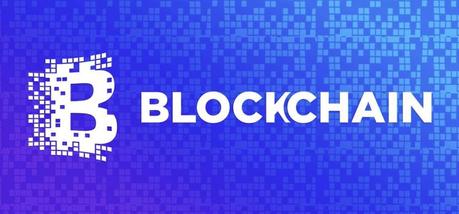Coupon Code (Click to Copy & Open Site)
Intro: What are the implications of the fintech arena adopting blockchain technologies? Offers peak into current state of banking on the blockchain, plus prediction on how a decentralised ledger will shape banks of the future.
The reality of blockchain technologies is fast disrupting the fintech arena. Brick-and- mortar banks' most recent status quo was competing for legacy banking clients, with a fairly predictable basket of goods on offer. However, a whole new world is now opening up as the decentralised ledger establishes itself. A very adamant group remains within cryptocurrency, however, which holds the demise of banks - or, at least the anonymity of digital coins - sacrosanct. The reality is the same blockchain technologies that enables virtual currencies has a massive application for the world's
banks.
Blockchain Technologies
While it's true that banks' openness to the blockchain - and, indeed, cryptocurrency - will depend largely on consumer adoption of the protocols and currencies, banks have their own lessons to glean from the tech. Terrified of digital currencies yet enchanted by blockchain's efficiency, banks have some hard thinking to do. Some also point to our human sense of trust, and it might well prove consumers elect to not dispense legacy banking because of it. Banking's image in the eyes of consumers, governments, and international business will take some undoing. Do we really still need a master in control of our financial affairs? While the world's citizenry debates the issues and toys with cryptocurrency, banks have been much quicker to investigate the new technology's underpinnings.

Wall Street's diatribe slowly gives way to real interest
From JP Morgan's CEO Jamie Dimon (in)famously calling Bitcoin "a fraud" in 2017 (which he later retracted), both he and his fintech colleagues appear to have separated digital currency from blockchain technology. Nowadays, finance houses are falling over themselves to develop and secure blockchain apps. Indeed, a far greater number of enquiries around blockchain are now handled by outsourced management companies. The modern IT support company is blockchain savvy.
Blockchain coders are also some of the most sought-after employees right now. For many involved with digital tokens, it came as a complete surprise to learn banks have fervently been pursuing blockchain technologies. As early as January 2018, Bank of America CEO Brian Moynihan was quoted in Davos as saying that BoA had "tons of [blockchain] patents" in their name. It has since become clear that banks are heavily involved with their own experiment, testing blockchain apps against legacy protocols as they search for savings and efficiency. Apps making headlines centre on applying the tech to cross-border payments between banks and other persistent challenges. Typically, an inconvenient amount of time (and charges) are associated with international money movement between banks. Blockchain immediately addresses many of these issues, yet there's been a belated rush by the fraternity to test and apply new blockchain protocols.

Will blockchain eventually make all currencies digital?
Bitcoin's meteoric rise had investment (and other) bankers salivating, and the phenomenon completely changed the global financial capitals' discourse. Bitcoin's rise and Ethereum's extensive application have further legitimised blockchain's value to legacy fintech companies.
As adoption continues in the banking community, it remains to be seen whether the final outcome will be the digitisation of all currencies. We already render our currency digital, in money-sending USSD protocols and the like. With such obvious blockchain benefits for banks, where the cut-off comes between blockchain and digital tokens is the stuff of banking's future. Reuters reported in 2018 on two large banks' blockchain adventure, a story that
further entrenched the technology's relevance to the sector. A securities lending transaction worth $30.48 million was enacted between Credit Suisse Group AG and ING Groep NV. The companies utilised blockchain technologies to conduct the transaction. While potentially great for end users, the downside is the driving force behind banks' interest in blockchain may be the prospect of cutting costs (read: employment).
As blockchain technology eliminates much of the back-office number crunching and paper sorting, people become disposable. Rather than passing on savings and moderating retrenchments, it currently appears that banks' typical application of blockchain tech is a wholly self-serving one.
A surprising number of banks have blockchain patents, as every entity seeks to both tailor their own affairs as well as hit on widely applicable banking protocols. That IP can be either licensed or otherwise monetised, and an informal competition is underway to develop the most sublimely astute application of banking blockchain. Transactions like the one conducted by ING Groep and Credit Suisse are anticipated to become daily fare and - eventually - dominate future banking. Both parties acknowledged employing a blockchain platform made the securities lending process cheaper and faster.
Simpler banks might mean cheaper banks for consumers
While it might take an upswing in consumer savvy around blockchain and cryptocurrencies, banks applying blockchain tech might spread the benefits all round. From a stage of investigating blockchain for how much it can save them, banks are unlikely to streamline so dramatically without rethinking typical bank charges and other consumer gripes.
Bitcoin attracted negative press during 2018 for its spiralling transaction fees, allowing banks a momentary sigh of relief. Although BoA is wild about blockchain, there's still trepidation in the community about cryptocurrency's potential to irreparably dent legacy banking. Millennials are already accustomed to dramatic shifts in business as usual, and they're unlikely to forsake their understanding as they head into positions of power in commerce and industry.
With any luck, the original ethos of Bitcoin will seep into the banks' blockchain journey, too. A future where banks are cheaper? It's not as impossible as many suppose. Now that 2018's dire regulatory threat has come and gone, cryptocurrencies are more legitimate and blockchain isn't going anywhere but up. This, too, is further encouraging banks to view digital coins and their blockchain construct as safe, inspiring heightened investigation of how it's best applied to banks of the future.
Must Read
How to use Brand Power of Instagram for Business How I Increase Domain Authority? How to find A Phone When Silent How to Speed Up Joomla Performance How to Use Templates in Azure Data FactoryDid you like this article?
1. Please share it with your network, we'd really appreciate it!
2. Would you like to write for Computer Geek Blog?
3. Keep subscribe us and follow us on Facebook and twitter for more tips & ideas about new technology.

Chelsea Cook is an outreach manager and content creator for various businesses. She is fascinated by technological innovations and cutting-edge solutions that help make the world a better place. Before entering the outreach and tech fields, Chelsea was a public librarian intrigued by bitcoin. She currently enjoys taking care of her two bunnies, multiple aquariums, and her roommate's two dogs.

